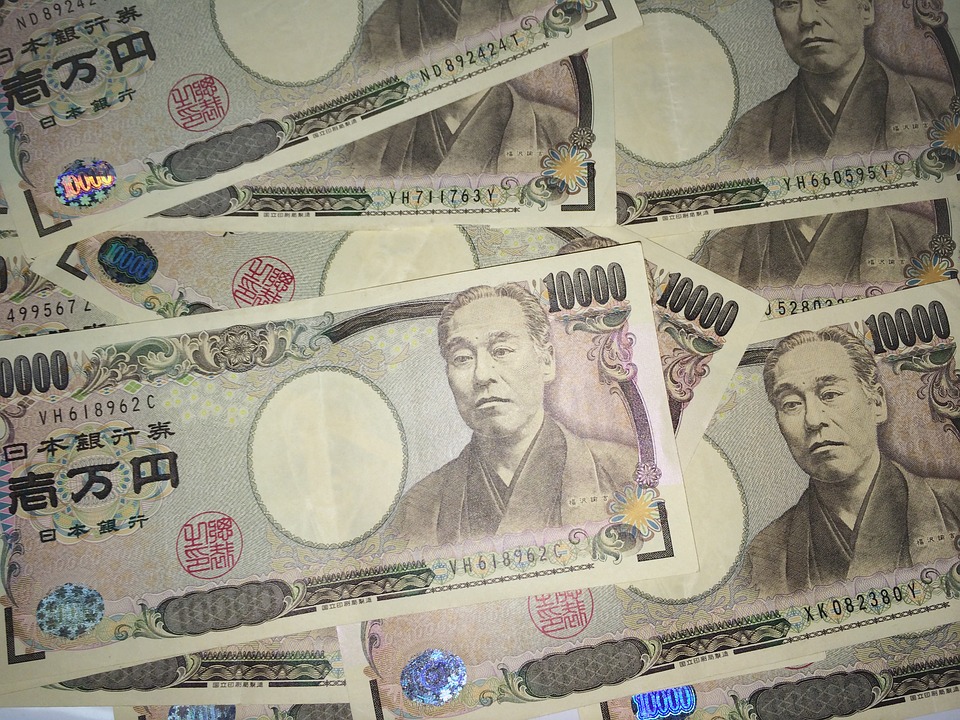As expected, the interest rate on deposits of commercial banks in the Central Bank was kept at minus 0.1%. The target yield of 10-year Japanese government bonds is left at about 0%.
The regulator will continue to purchase bonds worth 80 trillion yen ($ 730 billion) a year.
The Central Bank reiterated that the Japanese economy is growing moderately, however, this time it is noted that "exports and production suffered from a slowdown in growth abroad."
"Exports have shown some weakness lately," the Bank of Japan said. In January, the regulator noted a growth trend in exports.
Japan's exports declined by 8.4% in annual terms in January. The fall was the highest since October 2016. Exports to China, Japan’s largest trading partner, fell by 17.4% in annual terms in January.
Central bank officials fear that weakening of exports and production will have a negative impact on business sentiment, prompting firms to postpone capital expenditures and wage increases.
Six years ago, Japanese Prime Minister Shinzo Abe decided to defeat deflation. Haruhiko Kuroda was appointed head of the Bank of Japan to launch the most audacious monetary experiment in history.
However, despite the years of large-scale incentives, inflation in Japan remains well below the target 2% level.
Prices for consumer goods minus fresh food in January increased by 0.8%.
Meanwhile, the Bank of Japan now owns more than half of the government bond market and 80% ETF. Its balance is now more than the entire economy of $ 4.9 trillion.
The Bank of Japan is significantly lagging behind other large central banks in curtailing the crisis policy, which leaves it with few opportunities to deal with the next recession.
Japanese finance minister Taro Aso said Friday that "things could go wrong" if the central bank insists too much on achieving 2% inflation, Reuters writes. "No one in society will be angry, even if the inflation target is not achieved," he told.
The problem is that “abenomics” is essentially “kurodanomics,” writes Asia Times. In six years, Abe did not implement any of the shock therapy reforms that he advertised in 2012. Some changes were made, but nothing was done to recalibrate growth engines from exports to innovations and services. Abe relied too much on Kuroda’s quantitative easing and the weaker yen.
Japan’s problem is not in the supply of the yen, but in the use of all this liquidity. Bankers are more likely to sit on money than to issue loans. Abe also did not find a way to force companies to spend money on wage increases and increased investment.
source: reuters.com, asiatimes.com
The regulator will continue to purchase bonds worth 80 trillion yen ($ 730 billion) a year.
The Central Bank reiterated that the Japanese economy is growing moderately, however, this time it is noted that "exports and production suffered from a slowdown in growth abroad."
"Exports have shown some weakness lately," the Bank of Japan said. In January, the regulator noted a growth trend in exports.
Japan's exports declined by 8.4% in annual terms in January. The fall was the highest since October 2016. Exports to China, Japan’s largest trading partner, fell by 17.4% in annual terms in January.
Central bank officials fear that weakening of exports and production will have a negative impact on business sentiment, prompting firms to postpone capital expenditures and wage increases.
Six years ago, Japanese Prime Minister Shinzo Abe decided to defeat deflation. Haruhiko Kuroda was appointed head of the Bank of Japan to launch the most audacious monetary experiment in history.
However, despite the years of large-scale incentives, inflation in Japan remains well below the target 2% level.
Prices for consumer goods minus fresh food in January increased by 0.8%.
Meanwhile, the Bank of Japan now owns more than half of the government bond market and 80% ETF. Its balance is now more than the entire economy of $ 4.9 trillion.
The Bank of Japan is significantly lagging behind other large central banks in curtailing the crisis policy, which leaves it with few opportunities to deal with the next recession.
Japanese finance minister Taro Aso said Friday that "things could go wrong" if the central bank insists too much on achieving 2% inflation, Reuters writes. "No one in society will be angry, even if the inflation target is not achieved," he told.
The problem is that “abenomics” is essentially “kurodanomics,” writes Asia Times. In six years, Abe did not implement any of the shock therapy reforms that he advertised in 2012. Some changes were made, but nothing was done to recalibrate growth engines from exports to innovations and services. Abe relied too much on Kuroda’s quantitative easing and the weaker yen.
Japan’s problem is not in the supply of the yen, but in the use of all this liquidity. Bankers are more likely to sit on money than to issue loans. Abe also did not find a way to force companies to spend money on wage increases and increased investment.
source: reuters.com, asiatimes.com





